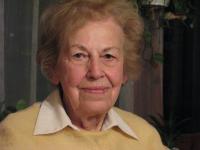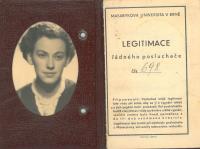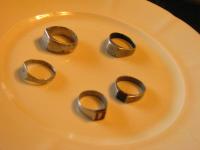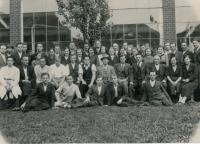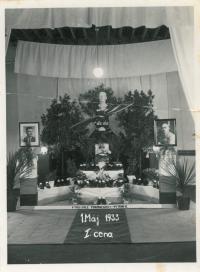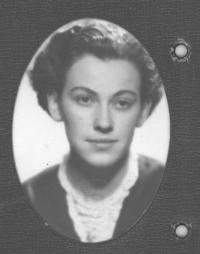Zlín, that was America

Stáhnout obrázek
Zdenka Slezáková, née Ulvrová, was born on February 11, 1919, in Vizovice. Her family moved to Zlín shortly after her birth. Her father got a job in Zlín in the Baťa factory, beginning at a worker‘s position and later becoming a foreman and head of one of the workshops. The Ulvr family experienced the interwar period when the city of Zlín flourished, and when life was determined by the Baťa factory. Even the economic crisis was rather marginal in Zlín, and it did not affect the family. At the end of the 1930s, Zdenka Ulvrová began her studies in the Philosophical Faculty in Brno, but she did not complete her studies due to the outbreak of WWII. She returned to Zlín, taught English and got married. She experienced the liberation of Zlín shortly after the birth of her baby. After the war, she moved to Brno with her family, her husband and her got jobs there. In 1971, her daughter Jarmila emigrated, the other two children stayed in Czechoslovakia. Mrs. Slezáková is now retired and lives in Brno.
